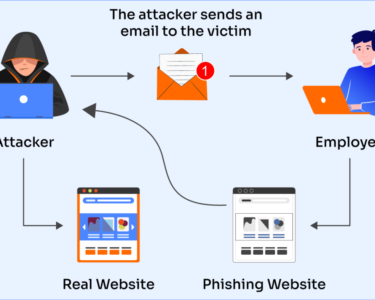
Impact of Digital Security on Business
In today’s digital age, businesses rely heavily on technology and interconnected systems to operate and grow. However, this increased connectivity also exposes them to a wide range of digital security risks. Protecting against these threats is crucial for businesses to ensure their continued success and reputation.
Types of Digital Security Threats
- Malware: Software designed to harm or disrupt systems, such as viruses, ransomware, and spyware.
- Phishing: Attempts to obtain sensitive information through fraudulent emails or websites.
- Hacking: Unauthorized access to computer systems or networks to steal data or disrupt operations.
- Data breaches: Unauthorized access to and theft or disclosure of sensitive business or customer data.
- DDoS attacks: Attempts to overwhelm a website or server with excessive traffic, making it unavailable.
Consequences of Digital Security Breaches
- Financial losses: Costs associated with recovering from attacks, including data restoration, system repairs, and legal expenses.
- Reputational damage: Loss of customer trust and confidence due to compromised data or interrupted services.
- Legal liabilities: Violations of data protection regulations can result in fines and legal penalties.
- Operational disruptions: Business processes and operations can be severely impacted by cyberattacks.
- Loss of intellectual property: Sensitive business information, such as trade secrets or product designs, can be stolen.
Benefits of Enhanced Digital Security
- Reduced vulnerability: Robust security measures mitigate the risks of cyberattacks and protect critical business assets.
- Improved resilience: Businesses can withstand and recover from security incidents more efficiently.
- Increased customer trust: Implementing strong security measures builds trust among customers who value the protection of their data.
- Competitive advantage: Businesses with a reputation for strong digital security can gain a competitive edge.
- Compliance with regulations: Enhanced security measures help businesses comply with data protection laws and regulations.
Best Practices for Digital Security
- Implement multi-layered security: Use a combination of firewalls, intrusion detection systems, and anti-malware software to safeguard systems.
- Educate employees: Train staff on security best practices and common threats, such as phishing emails.
- Implement strong passwords: Enforce complex password policies and enable two-factor authentication.
- Patch systems regularly: Install software updates to address security vulnerabilities.
- Back up data: Regularly create backups of critical data to ensure its recovery in case of a breach.
- Have an incident response plan: Develop and test a plan for responding to and mitigating cyberattacks effectively.
- Partner with cybersecurity professionals: Consult with external experts to assess risks, implement security measures, and respond to incidents.
Conclusion
Digital security is paramount for businesses of all sizes. By implementing robust security measures and adhering to best practices, businesses can mitigate risks, protect their assets, and ensure the continuity of their operations. Enhanced digital security not only safeguards the business but also builds trust, fosters resilience, and drives competitive advantage in the increasingly interconnected digital landscape.



